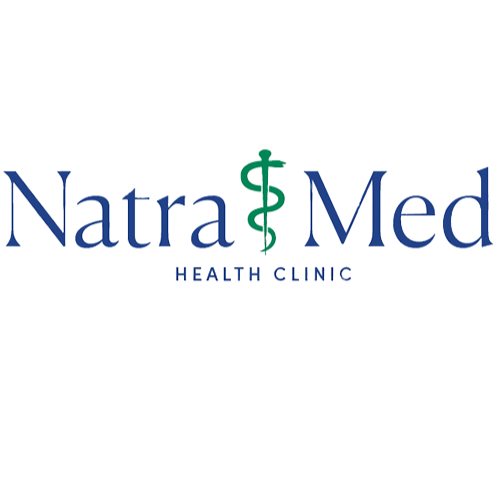Nutrition During Cancer Treatment: Evidence-Based Approaches to Managing Side Effects
Cancer treatment can take a significant toll on the body, often causing side effects that impact nutritional status and quality of life. Proper nutrition during cancer treatment can help maintain strength, prevent weight loss, minimize side effects, and support recovery. This blog post explores evidence-based nutritional approaches to managing common side effects of cancer treatment.
Understanding Nutritional Challenges During Cancer Treatment
Cancer treatments like chemotherapy, radiation, immunotherapy, and surgery can cause various side effects that affect eating habits and nutritional intake. These can include nausea and vomiting, an altered sense of taste or smell, mouth sores, dry mouth, loss of appetite, fatigue, diarrhea or constipation, swallowing difficulties.
These side effects, combined with the metabolic changes that cancer itself can cause, create unique nutritional challenges that require tailored approaches.
Evidence-Based Strategies for Common Side Effects
Nausea and Vomiting
Small, frequent meals: Eating 5-6 smaller meals rather than 3 large ones can prevent overwhelming the digestive system.
Cold or room temperature foods: These produce fewer aromas that may trigger nausea.
Ginger supplements: Several clinical trials support ginger's anti-nausea effects during cancer treatment. A meta-analysis published in the Journal of Clinical Oncology found that ginger supplementation (about 1 gram daily) significantly reduced acute chemotherapy-induced nausea. Other herbal medicines can also reduce nausea and digestive sensitivity on your oncology journey. It is important to determine which herbs are suitable for your personal health and this is done in a 1:1 clinical setting.
Avoiding triggering foods: Greasy, spicy, or strongly aromatic foods often worsen nausea.
Altered Taste (Dysgeusia)
Flavor enhancement: Adding herbs, mild spices, marinades, or fruit juices can help overcome metallic or bitter taste changes.
Zinc supplementation: Research in the International Journal of Radiation Oncology showed that zinc supplements may help restore taste in some patients undergoing radiation therapy. The suitability of zinc for your oncology journey will need to be determine by Marissa or your oncology team.
Switching utensils: Using plastic utensils instead of metal can reduce metallic taste sensations during meals.
Practicing good oral hygiene: Brushing before meals can help food taste better.
Mouth Sores and Dry Mouth
Soft, moist foods: Smoothies, yogurt, mashed potatoes, and well-cooked pasta are easier to consume.
Cold foods: Ice pops, frozen yogurt, or smoothies can provide soothing relief and antioxidant support for cellular wellbeing.
Oral rinses: Saltwater or baking soda rinses before meals may help manage mouth sores.
Avoiding irritants: Acidic, spicy, rough, or very hot foods can worsen mouth discomfort.
Loss of Appetite and Early Satiety
Nutrient-dense foods: Focus on calorie and protein-rich options when appetite is limited.
Medical nutrition supplements: Evidence supports using oral nutritional supplements to maintain weight and improve outcomes.
Appetite stimulants: In appropriate cases, medications like megestrol acetate or dexamethasone may be prescribed.
Timing meals: Eating when hunger is strongest, often in the morning for many patients.
Fatigue-Related Eating Challenges
Energy conservation: Keeping easy-to-prepare foods available and accepting help with meal preparation.
Batch cooking: Preparing larger quantities during higher-energy periods for future meals.
Delivery services: Utilizing meal delivery services or grocery delivery to reduce energy expenditure.
Gastrointestinal Issues
For diarrhea:
BRAT diet components: Bananas, rice, applesauce, and toast can help firm stools.
Soluble fiber: Gradually increasing intake may help regulate bowel movements.
Proper hydration: Replacing lost fluids and electrolytes is crucial.
For constipation:
Insoluble fiber: Gradually increasing whole grains, fruits, and vegetables if tolerated.
Adequate fluid intake: Aiming for at least 8-10 cups daily unless contraindicated.
Physical activity: Even light movement can help stimulate bowel function.
Protein and Energy Needs During Treatment
Research indicates that maintaining adequate protein intake is particularly important during cancer treatment:
Protein requirements: Often increased to 1.2-2.0 g/kg body weight per day (compared to 0.8 g/kg for healthy adults).
Energy needs: Typically range from 25-30 calories per kilogram of body weight daily, though this varies based on treatment intensity and nutritional status.
Evidence-Based Nutritional Interventions
Early Nutrition Screening and Assessment
The American Society for Clinical Oncology (ASCO) and the European Society for Clinical Nutrition and Metabolism (ESPEN) both recommend routine nutrition screening at diagnosis and regular intervals during treatment. Early intervention can prevent severe malnutrition and improve treatment outcomes.
Medical Nutrition Therapy
Working with a registered Gerson Oncology Naturopath has been shown to:
Improve nutritional status
Reduce treatment interruptions
Enhance quality of life
Better manage side effects
When to Consider Alternative Feeding Methods
In cases of severe malnutrition or inability to consume adequate oral nutrition, enteral nutrition (tube feeding) or parenteral nutrition (intravenous feeding) may be recommended. Early intervention with these approaches when indicated can significantly improve outcomes.
Nutrition during cancer treatment requires an individualized approach that addresses specific side effects while meeting increased nutritional needs. Evidence supports early and ongoing nutritional assessment, targeted symptom management strategies, and close collaboration with healthcare providers.
If you or a loved one are undergoing cancer treatment this specialized support can make a significant difference in managing side effects, maintaining strength, and supporting the best possible outcomes during the cancer journey.
Remember that nutritional needs may change throughout treatment and recovery, so regular reassessment and adjustment of strategies is essential for optimal care.


